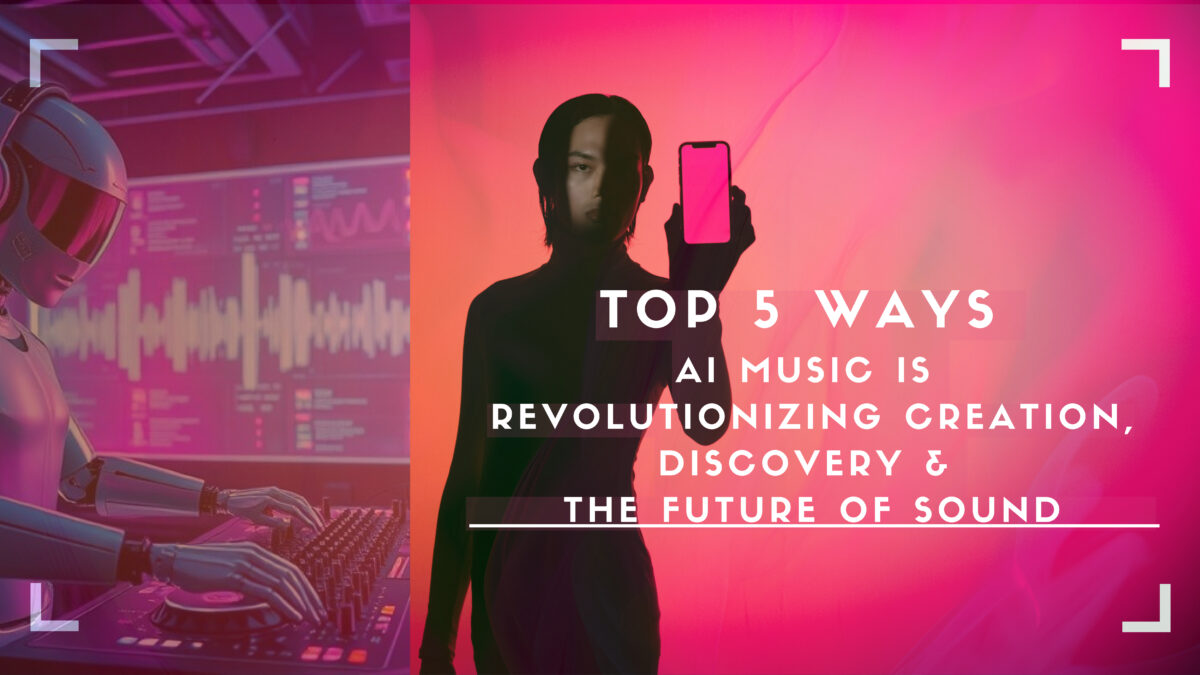Introduction – The Tech Behind the Tunes: How AI is Transforming Music Creation and Discovery
The world of music is undergoing a silent but seismic transformation — driven not by instruments or vocals alone, but by algorithms and artificial intelligence. From composing background scores to recommending your next favorite track, AI is now deeply embedded in the way we create, consume, and connect with music.
What once took hours in a professional studio can now be done in minutes using AI-powered tools. Music is being composed by machines, personalized by algorithms, and distributed with precision through platforms that learn your tastes better than you might know yourself. This shift is not just technological — it’s cultural.
In this blog, we’ll explore the top five ways AI music is reshaping the entire industry — from creation and discovery to what the future might sound like. Whether you’re a music lover, an artist, or a tech enthusiast, understanding this evolution is essential to staying in tune with the digital age of sound.
Table of Contents
How Artificial Intelligence is Becoming a Creative Partner in Music
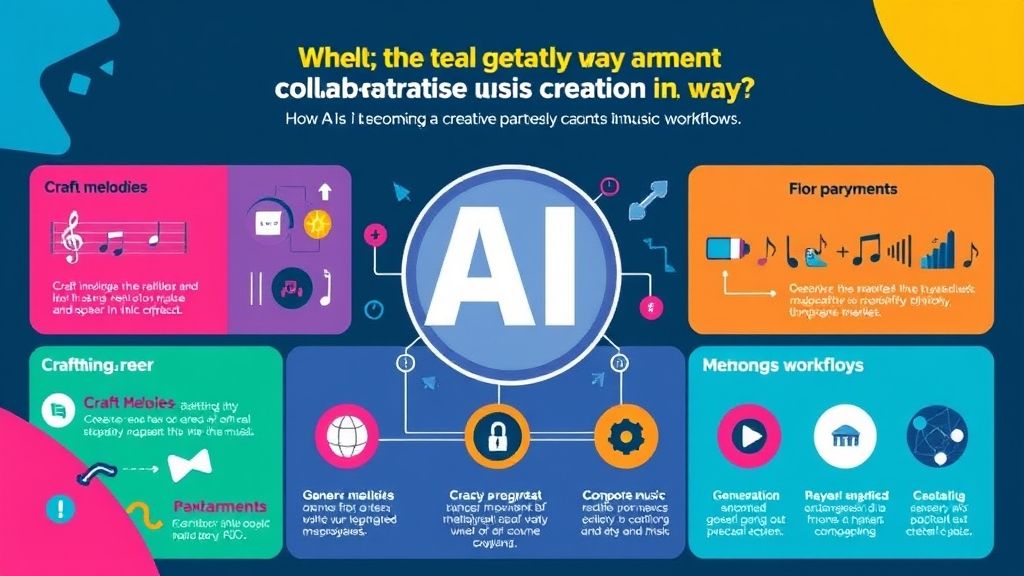
For centuries, music creation was an entirely human endeavor — shaped by culture, emotion, and experience. But today, AI music platforms are stepping into the role of co-creator, enabling musicians and even non-musicians to generate complex compositions with the help of algorithms.
Unlike traditional software that simply records or edits sound, music creation AI tools like Soundraw, AIVA, Amper Music, and Boomy actively participate in the creative process. These systems analyze musical structures, learn from vast libraries of genres, and generate melodies, harmonies, or beats that align with user preferences — often in real time.
Instead of replacing creativity, AI is amplifying human potential. A solo artist with limited production skills can now orchestrate cinematic soundscapes. A podcaster can generate custom background tracks tailored to mood and timing. Musicians use AI to break creative blocks or rapidly prototype ideas.
In short, AI is no longer just a tool — it’s becoming a collaborative partner that listens, learns, and composes.
Behind the Beat: The Algorithms Personalizing Our Playlists
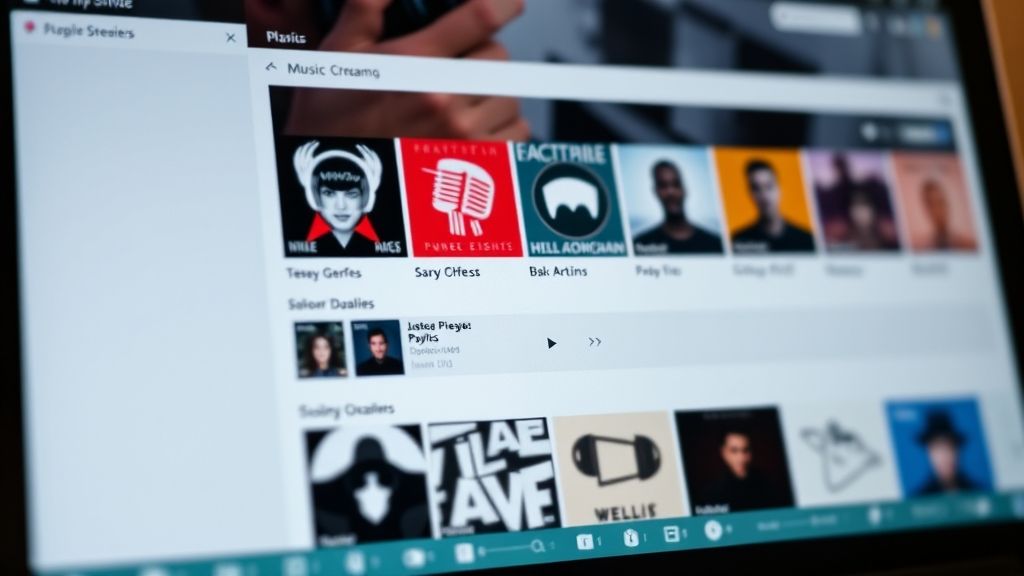
Ever wondered how Spotify always seems to know what you want to hear next? Or how YouTube serves up just the right music video to match your mood? The answer lies in the power of music discovery algorithms — advanced systems that analyze your listening habits, skip rates, likes, and even the time of day you hit play.
These algorithms go beyond basic genre matching. By scanning metadata, mood tags, tempo, lyrical themes, and your behavioral patterns, they create a musical fingerprint for each listener. AI models then use this data to serve up highly tailored recommendations, often introducing users to tracks or artists they wouldn’t have found on their own.
For artists and producers, this shift is monumental. Discovery is no longer solely driven by radio play or curated charts — it’s algorithmic. Getting placed on a playlist powered by music technology can skyrocket a track’s reach overnight.
This personalized curation enhances user engagement and drives loyalty, making AI in the music industry not just a backend tool, but a frontline force in shaping taste.
Tools Leading the AI Music Movement
The rise of AI music owes much to a growing ecosystem of powerful, user-friendly tools that are democratizing music creation. Whether you’re a seasoned producer or a curious beginner, today’s music creation AI platforms offer the ability to generate professional-grade compositions with minimal effort.
Some of the most notable tools include:
- Soundraw – Ideal for content creators, Soundraw lets users generate royalty-free music by choosing moods, lengths, and themes. It creates dynamic, customizable music that adapts to your input.
- AIVA – A pioneer in emotional composition, AIVA is used by composers to create classical and cinematic pieces. It learns from historical music to compose original scores.
- Boomy – Built for speed and accessibility, Boomy allows anyone to create a full song in minutes and distribute it on major streaming platforms — no musical background required.
- Amper Music – Designed for video, games, and film production, Amper combines intuitive controls with AI-assisted scoring, enabling creators to match audio perfectly with visual content.
- Suno AI – A standout platform that allows users to generate entire songs, complete with lyrics. Its ease of use and impressive results have made it a favorite among both casual experimenters and musicians looking for new creative avenues.
What do you think? Could you tell AI created this? Share your thoughts in the comments below!
These tools represent a new frontier in music technology — one where time, skill, and equipment are no longer barriers to entry. They’re not only reshaping how music is made, but also expanding who gets to make it.
As adoption grows, so too does the sophistication of the AI models behind them, raising the bar for what’s possible in both commercial and artistic spheres.
Challenges in Copyright, Originality, and Human Expression
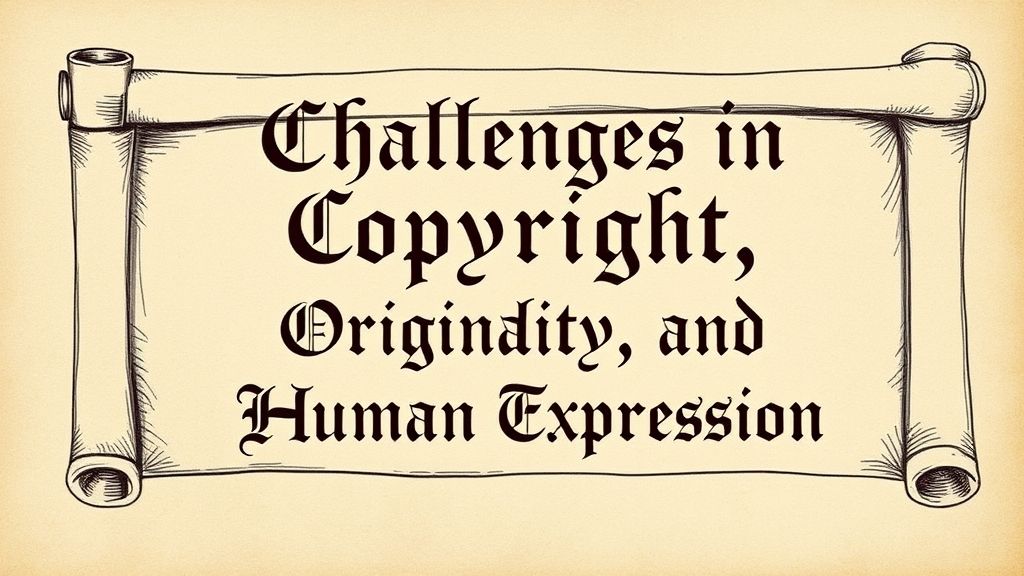
As AI music gains traction, it also raises a chorus of complex questions — especially around copyright, originality, and the very essence of creativity.
One of the biggest debates is: Who owns a song created by AI? If a user selects a few inputs and the algorithm generates the composition, is the user the rightful owner? Or does credit go to the developers behind the music creation AI? Legal systems around the world are still grappling with this, as traditional copyright laws were not built to accommodate non-human authorship.
There’s also the question of originality. AI models are trained on vast datasets of existing music — which means they’re essentially learning from human-made content. Critics argue that this could lead to unintentional plagiarism or derivative works that blur the line between inspiration and imitation.
And what about human expression? While AI can mimic emotional tones and musical complexity, many believe it lacks the lived experience and emotional nuance that defines great music. For now, AI might be able to create impressive compositions, but not necessarily profound ones.
Despite these concerns, the conversation around AI in the music industry is evolving fast — with regulators, creators, and technologists working toward clearer standards and ethical boundaries.
What’s Changing for Artists and Listeners Alike
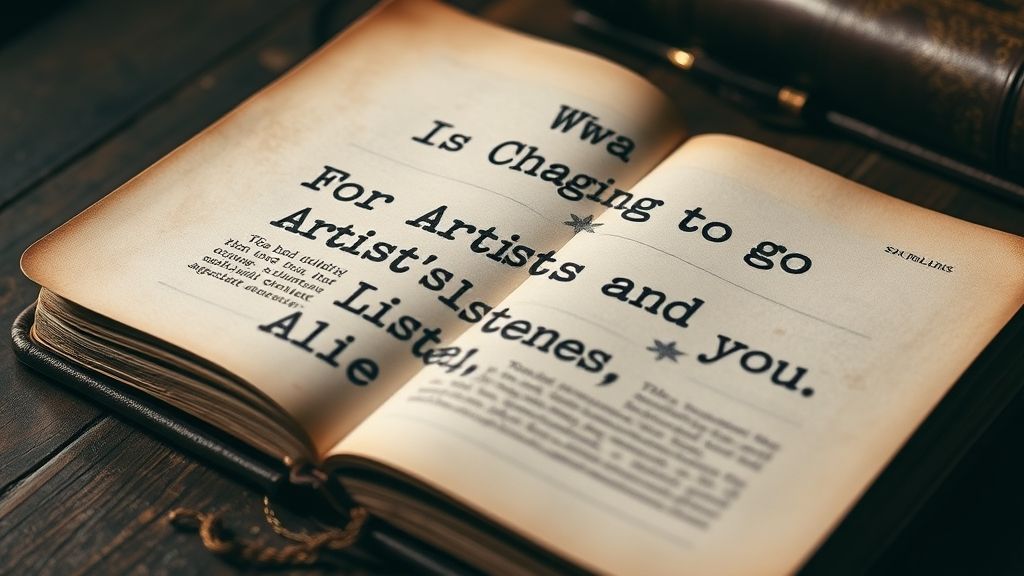
The impact of AI in the music industry isn’t limited to how music is made — it’s transforming the entire experience for both artists and listeners.
For artists, AI offers a leap in productivity and accessibility. Independent musicians can now produce, mix, and distribute tracks from a laptop — no expensive studios or large teams required. AI tools help with songwriting, mastering, and even crafting lyrics or artwork, allowing creators to focus on storytelling and branding. It’s leveling the playing field, opening doors for global talent previously shut out due to limited resources.
On the listener’s side, music discovery algorithms are delivering hyper-personalized experiences. Instead of browsing through endless playlists, fans now receive daily recommendations tailored to their habits, moods, and even activities. AI DJs, smart playlists, and adaptive soundscapes are making music feel more intuitive and immersive.
This shift is redefining music as a dynamic, interactive experience — one that evolves with you, rather than simply playing to you.
While AI may never replace the soul of music, it’s certainly reshaping how it reaches and resonates with us.
The Next Chapter: Where AI and Music Innovation May Head
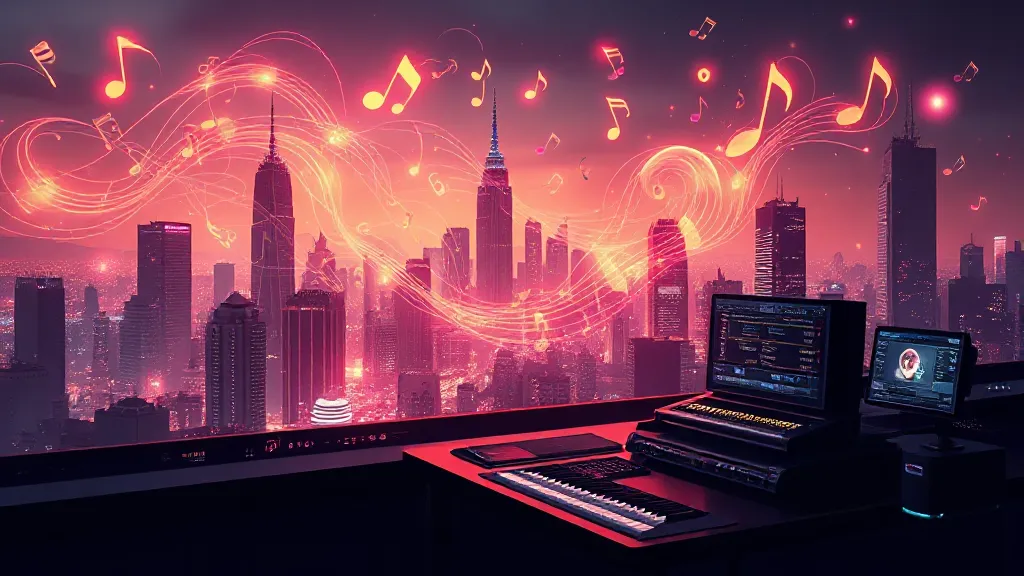
AI in music industry – As we look to the future, the intersection of AI and music promises even more exciting possibilities. The technology behind AI music is advancing at an exponential rate, and we’re just scratching the surface of its potential. We’ve already seen the transformation in how music is created, discovered, and consumed — but what about the deeper, more transformative changes?
In the near future, AI may not just assist in music production but could drive entire new genres, styles, and collaborations. With the ability to analyze every facet of music — from chord progressions to emotional resonance — AI could become the ultimate creative partner for musicians, offering insights and ideas that push boundaries.
Moreover, music discovery may evolve beyond personalized playlists. We could see AI-generated music that adapts to your real-time mood or even AI-driven live performances, where the music continuously evolves based on audience feedback. The possibilities for immersive experiences, powered by AI, could open entirely new ways of engaging with music.
While some are cautious about the implications of AI in art, the reality is clear: technology and creativity are converging in ways that will shape the music landscape for decades to come.
The journey is just beginning, and with every algorithmic note, AI is composing the future of music — one sound at a time.
Have you experimented with any AI music tools? What was your experience?
💡 Stay ahead of the future! Follow us on:
Facebook | LinkedIn


